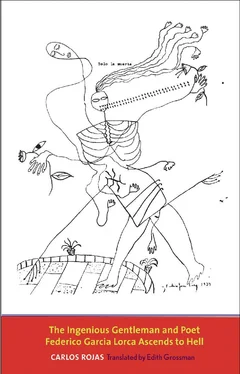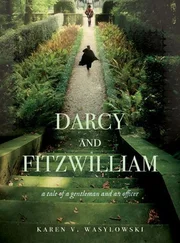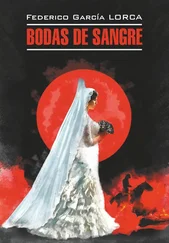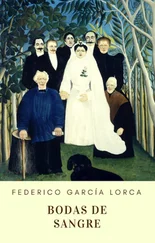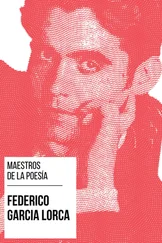You listened to her until that point (the point being staged now, with the ghosts of all of you like actors in this theater in hell). Then you stopped hearing her in order to observe your own personal revelation before the painting. As had happened before, when your family crossed paths with Vicente Pastor beside The Fallen Angel , you told yourself you ought to treasure the moment, with La Gare Saint Lazare in the background, because on another occasion in your life its true significance would be revealed to you. Again in the station in Madrid and at the end of the Andalucía express, you knew the moment foreseen twenty-four or twenty-five years earlier had arrived. Like water in water, the memory of the painting by Monet merged into the present reality, in which you weren’t listening to Rafael just as in the Retiro you stopped hearing your mother as she attempted to explain to all of you the secret intentions of impressionism before your father’s sarcastic smile. Smoke with smoke, platforms with platforms, iron horses with iron horses, everything intermingled with everything. So tight was the weave of the living and the painted that you didn’t know with certainty if you were entering a station or a picture. Suddenly, like a note in the margin of that experience, you repeated everything your mother had said in the Retiro. Monet tried to capture a fleeting instant in La Gare Saint Lazare , one of the transitory, marvelous seconds whose passage we are almost never aware of in our lives. He painted an ordinary train entering Paris and performed a miracle achieved previously only by Velázquez. In other words, he stopped time so that men could take delight in the silent miracle, assuming they weren’t blind to his painting as your father was. Now his painted moment and your lived moment were one, when your arrival in and departure from Madrid were confused into a single instant at both ends of a quarter of a century that was also the time of your self-aware life.
The rest was foreseeable and you made an effort to shorten it, though you would be overcome again by the certainty of having experienced everything before in some unknown dimension of time or of your soul. Rafael Martínez Nadal insisted on carrying your suitcase into your compartment and lifting it onto the luggage net above some faded photographs of the Rhine in Basel and the Loire as it passed through Amboise, which crowned the seats upholstered in open, embroidered dahlias. You walked with him to the platform to say goodbye from the step of the car, when you saw that man in the passageway and were overcome by terror.
Leaning out one of the windows, his back almost turned to you, he looked absentmindedly at the platform. You recognized his corpulence, his firm jaws that gave him a faint resemblance to pictures of your father in his youth, his camel driver’s shoulders, and that hair as black and kinky as an African’s. Being a right-wing deputy, he attended meetings wearing a butcher’s smock identical to Vicente Pastor’s in his early amateur bullfights. In his speeches he took God’s name in vain, with the same arrogant indifference he brought to taking a taxi in Granada to go to Madrid, though afterward he tried to avoid paying, hiding somewhere or other. At one of the dinners you and José Antonio Primo de Rivera would go to, also in secret, you referred to the calluses on his hands, which he would show to the Party to prove that a weather-beaten worker could be loyal to Law, Order, and the Indivisible Fatherland. José Antonio Primo de Rivera would laugh heartily. “He’s just a tamed worker!” he exclaimed. “Nothing but a tamed worker! When Gil Robles gets tired of exhibiting him, he’ll sell him to a provincial circus.”
“Go now, Rafael,” you said to Martínez Nadal on the platform. “Don’t wait for the train to leave.”
“Don’t be impatient. All in good time. I’m in no hurry.”
“You’ll do me a huge favor if you leave right now.”
“Why so much urgency and mystery? You’re like a conspirator.”
“Do you see that man? The husky one, with the big jaws, looking out the window. He’s a deputy from Granada and a bad character. Under no circumstances do I want to talk to him. As soon as you leave, I’ll go into my compartment and close the curtains. Please leave before he sees us.”
“All right, all right. I’ll go if you insist.” Wearily he shook his sheep’s head again. “You’re the most fearful, superstitious creature I’ve ever known.”
“Whatever you say; but go now. I beg you. He can turn around at any moment.”
“Who is that man, after all? A ghost, the bête noire of your sleepless nights, or simply a messenger of fate?”
“I just told you, a right-wing deputy for Granada.” You hesitated and summoned all your courage to say his name, which for reasons as yet unknown brought terror to your soul. “His name is Ramón Ruiz Alonso.”
With a shrug to express his ignorance or his indifference, Rafael Martínez Nadal said goodbye with a handshake. You saw him walk down the platform, not turning around even once, far removed from any presentiment that your final encounter was ending here. With no nostalgia and no sadness, because your uneasiness mixed an unexpected coldness into your spirit, you watched him until he was lost in a turbulent crowd of hurrying people running toward the Andalucía express. Then, in your compartment, you closed the door to the passageway and closed the curtains. In the shadows Basel grew dark, and a yellowish-gray Loire ran through Amboise, where you thought Leonardo had been buried. In one of his notes he described the river water we touch as the last of the water that has gone and the first of the water to come. In his opinion, that’s what the present was like. No need to even say he was wrong, just as you were mistaken when you supposed the dead were blind. If the days of our lives were like river water, each river would be a circle bound to empty into its own headwaters. Each drop identical to all the rest and each hour the same as one lived earlier. Through you Monet’s train began to fuse with the Andalucía train. One was coming into the Gare Saint-Lazare, the other slowly leaving Madrid to carry you to an irrevocable death you had already experienced earlier.
Through the window pane, passing faster and faster, were tracks, crossties, switch rails, sand traps, walls, sidings, ballast, tenders, cars, platforms, and sidetracks. They pass now across the stage in this theater, where memories return to you intact the life you’ve lived. Each man carries hell inside him, because hell is absolute memory. Those rivers turned into circles, which were your lives, return at any point from their water to the exorcism of desire. Night was falling, as it falls now on stage, as the train moved away from Madrid. The first lights cross the windowpane as they were being lit at dusk in 1936. You felt fatigued and drowsy at the end of that interminable day, the last of your days in Madrid. You stood to close the curtains, as you had closed the ones on the door to the passageway. As your image stands now in the theater to close them. The entire representation is identical to what happened, down to the last and most insignificant detail, as it was so many other times when you relived that final trip to the land where you were born and your inevitable death.
Suddenly, and in a manner as unforeseen as it was unexpected, something on the stage differs from what occurred! One might say you take an eternity, if one can speak of eternity in hell, to close the curtains. You would swear that in the reality of the past you closed them quickly in order to lie down on the bed in your compartment and forget everything, absolutely everything, Ruiz Alonso and Martínez Nadal, Monet and Vicente Pastor, Aschenbach’s gondolier and the taxi driver always waiting for you, Sánchez Mejías and Primo de Rivera, Sodom and the church in Harlem, The Public and Yerma, The Fallen Angel and the Huerta de San Vicente, the empty cup on the closed balcony and the great-grandson of Medioculo, the onyx slipper snail in your dreams and your admirer in Cook’s. Now, however, your standing image pauses, his back to the door to the passageway, while hell prints an unexpected and terrible message on the windowpane. There, in large, bright letters that never appeared before on the windows of the express, four golden, gleaming words: PREPARE FOR YOUR TRIAL.
Читать дальше
